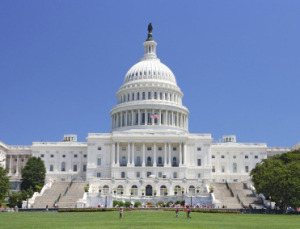
The tax would be
applied to the sale
of most medical devices.
The health care reform bill that passed the U.S. House of Representatives Sunday night calls for a 2.3 percent excise tax on the sale of most medical devices. This tax, if passed in the Senate this week, is expected to raise $20 billion over the course of 10 years to help pay for health care reform.
The tax, which will be applied to medical devices ranging from surgical instruments to bed pans according to Mass Device, will be implemented in 2013. Originally, the excise tax was proposed to raise $40 billion over 10 years starting in 2011.
Wanda Moebius of the Advanced Medical Technology Association (AdvaMed) says "no tax is ideal," but the tax that is on the floor is better than what was originally proposed. She points out that not only will the tax be put off until 2013, it will also be deductible from corporate taxes and work as a predictable tax on income.



Ad Statistics
Times Displayed: 71871
Times Visited: 2357 Ampronix, a Top Master Distributor for Sony Medical, provides Sales, Service & Exchanges for Sony Surgical Displays, Printers, & More. Rely on Us for Expert Support Tailored to Your Needs. Email info@ampronix.com or Call 949-273-8000 for Premier Pricing.
"It's come a long way," she says.
Stephen J. Ubl, AdvaMed president and CEO, applauds the extended health care coverage but said in a statement that there are concerns surrounding the effects of the medical technology tax. A major concern is the financial effects on medical device companies.
The traditional patient using medical device services tends to be older, says Moebius, so procedures with these devices are already covered by Medicare. That means health care providers with medical devices won't see very many new patients to benefit from this extended coverage.
"Some claims that may come as a result [of the health care bill] may not necessarily apply to our sector," she explains.
Mark Leahey, the president and CEO of Medical Device Manufacturers Association (MDMA), also doubts that there will be a cost offset with more people having coverage. He compares the proposed bill to the universal coverage in Massachusetts, with which MDMA did not find an increase in sales, he says.
"Most of our products are used in an acute-care setting, a hospital setting," Leahey explains. "The hospital does treat you," regardless of whether a person has insurance. "We don't anticipate an appreciable uptake in sales," he says.
When it comes to small and midsized companies, there is a financial concern, says Leahey.
"The concern is that the tax is structured based on total revenue of companies," he says. "The current structure would have a devastating impact on jobs for these companies, R&D budgets and the ability to bring new therapies to the table... If the issue isn't resolved, companies will move overseas or dry up."
While medical device companies and organizations oppose the tax and call it unfair, Harold Pollack a professor at the University of Chicago's School of Social Service Administration, says that the medical device industry is a "reasonable place to get tax revenue, given the dollars spent and the profitability of the industry."
Looking ahead, Leahey hopes corrections will be made to the tax before it would go into effect in 2013.
The amendment would make it so companies that make less than $100 million in annual sales are exempt from the tax; companies that report between $100 million and $150 million in sales would pay a tax on only half of their revenues; and companies that make more than $150 million would pay the tax on 100 percent of their revenues.
"It's not until that company reaches $100 million in sales, that they hit that profitability threshold," Leahey says.
Moebius and AdvaMed also fear the repercussions of this tax on companies down the road.
"A lot of people might not understand what role payment policy or FDA policy or legislation actions may have on innovations," says Moebius. "But if you tamper with the innovative ecosystem you can inadvertently cause medical process to slow or cease."
But Dave Fisher, Medical Imaging Technical Alliance executive director, says there are no positives.
"A tax is a tax," he says.

